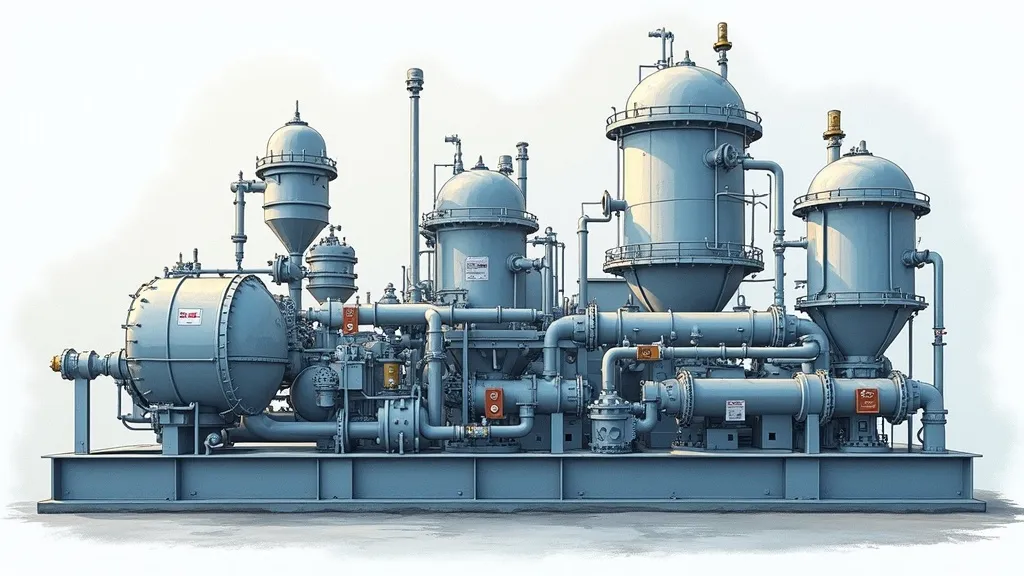Stauff Filters are crucial components in hydraulic systems, ensuring optimal performance by removing contaminants from the fluid. These filters are integral in industries that require precise fluid control and cleanliness, helping to extend equipment life and reduce maintenance costs. This guide explores their functions, advantages, and applications in various sectors.

In the realm of hydraulic systems, maintaining the cleanliness and efficiency of fluids is critical. Stauff Filters play a pivotal role in this aspect, ensuring that hydraulic systems function smoothly without frequent breakdowns or maintenance issues. These filters are specifically designed to trap and remove contaminants from hydraulic fluids, thus safeguarding the equipment and enhancing its longevity.
Stauff Filters are designed to be highly efficient in filtering hydraulic fluids. They come in various configurations, including high-pressure, low-pressure, and return-line filters, each catering to specific operational needs. Their robust construction ensures durability and reliability in even the very demanding industrial environments. The materials used in the construction of Stauff Filters are selected not only for their strength but also for their resistance to corrosion, which is essential in environments where exposure to aggressive chemicals may occur.
Furthermore, Stauff Filters are equipped with technology that enables them to handle a variety of flow rates and viscosities. For example, the design of the filter element allows for a significant surface area, which enhances the dirt-holding capacity. This means that the filter can operate for longer periods without needing to be replaced, thereby reducing the frequency of system maintenance and downtime.
Stauff Filters are indispensable in industries such as manufacturing, oil and gas, agriculture, and construction. For instance, in construction, hydraulic systems power everything from excavators to cranes, where performance and reliability are non-negotiable. The need for reliability in such heavy-duty machinery means that having a filtering system in place that can consistently operate without fail is quite crucial.
Similarly, in the agricultural sector, the use of clean fluid promotes the smooth operation of machinery, leading to increased productivity. In this industry, hydraulic systems are often used in tractors, harvesters, and other equipment that play vital roles in food production. Thus, the functionality of Stauff Filters here not only boosts efficiency but also impacts food security by minimizing equipment failures during critical planting or harvesting periods.
In the oil and gas industry, Stauff Filters are utilized to maintain the integrity and efficiency of hydraulic systems that support drilling and extraction processes. These systems often operate under extreme conditions, making the reliability provided by Stauff Filters essential. Moreover, the presence of abrasive materials in drilling fluids highlights the need for effective filtration to prolong the life of hydraulic components.
| Feature | Stauff Filters | Other Filters |
|---|---|---|
| Durability | High, designed for industrial use | Varies, may require frequent replacement |
| Efficiency | Removes a wide range of contaminants | May not filter as effectively under high pressure |
| Cost | Cost-effective over time | May have a lower initial cost but higher maintenance costs |
| Versatility | Available in many configurations for different needs | Limited options for specialized applications |
| Maintenance | Low, with longer intervals between replacements | Higher, often requiring cumbersome replacement schedules |
For the optimal performance of Stauff Filters, it is crucial to install them correctly, following the manufacturer's guidelines. This includes ensuring that the orientation of the filter is as specified and that all connections are secure to prevent leaks. It’s also essential to use appropriate lubricants on seals and threads to prevent premature wear and ensure a tight seal.
Regular checks and timely replacement of filter elements are recommended to maintain the cleanliness and efficiency of the hydraulic systems. The frequency of replacement will depend on the type and size of the filter, as well as the operating conditions of the equipment. In highly contaminated environments, filters may need to be replaced more frequently.
This proactive approach will prevent potential issues and ensure the longevity of the equipment. Additionally, creating a maintenance schedule that aligns with operational demands can help track filter usage and identify patterns that may dictate ahead of time when replacements are necessary.
In summary, Stauff Filters are not just components in hydraulic systems; they are essential to the performance, efficiency, and reliability of the equipment they serve. By providing an advanced filtration solution that is durable, efficient, and cost-effective, Stauff Filters help industries maintain high productivity levels while reducing maintenance costs and environmental impact. Their versatility across various applications underscores their importance in the functionality of modern hydraulic systems.
As industries continue to evolve and embrace technological advancements, the need for sophisticated filtration solutions like Stauff Filters will only grow. Emphasizing the importance of cleanliness in hydraulic fluids not only protects machines but also fosters a safe working environment, promoting sustainability and efficiency.
Looking ahead, the filtration industry is poised for significant advancements. As automation becomes more prevalent in industrial settings, the need for smarter filters that can monitor their own condition and performance will likely increase. This may lead to the development of Stauff Filters equipped with sensors and IoT technology, which can provide real-time data on the state of the hydraulic system and alert operators to any issues before they lead to system failures.
Furthermore, with the rise of environmental consciousness in the manufacturing sector, there may also be an increasing demand for biodegradable and eco-friendly filter materials. Companies are likely to seek solutions that not only enhance their operational efficiency but also adhere to sustainable practices and reduce their carbon footprint.
Ultimately, the role of Stauff Filters, and filtration solutions in general, will become ever more critical as industries strive for higher efficiency and lower operational costs. By investing in high-quality filtration technologies today, organizations can safeguard their hydraulic systems and prepare themselves for the challenges of tomorrow.